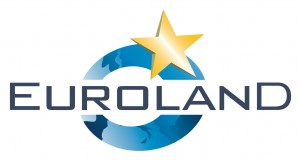Although the summer recess may only just have ended, the debate on the EU referendum is hotting up. The Dutch constitution does not provide for referendums at the national level – neither binding nor consultative. To allow the Dutch people to decide on the EU constitution, at least in a consultative referendum, a new law is needed.
Members of the “Europese Referendum Campagne Nederland” (ERC Netherlands) were involved in drafting this piece of legislation. As early as May 22nd, a draft bill was presented by MPs Farah Karimi of GroenLinks (the Green Lefts), Niesco Dubbelboer of the PvdA (the Socialists) and Boris van der Ham of D66 (the Left Liberals).
Meanwhile, the “Raad van State”, the Dutch advisory council on new legislative proposals, has stated its agreement to holding a national referendum. The basic argument is that the EU constitution would have consequences for the Dutch constitution. As constitutional amendments in the Netherlands can only be enacted over a span of two legislative periods, it would mean that the current Dutch government would have to be dissolved and new elections would have to take place. The new government could then accept the amendment if at least two-thirds of the MPs vote in favour of it. The rationale is that, by means of the new elections, citizens are enabled to give their opinion on the constitutional amendments. According to the “Raad van State”, this process would take too long in the case of the EU constitution. A consultative referendum before ratification by parliament is therefore the most realistic way of dealing with the EU constitution.
The “Raad van State” made a couple of comments, however. One of them concerned the phrase in the draft law suggesting that a referendum would increase the legitimacy of ratification by parliament. According to the “Raad van State”, the term ‘legitimacy’ has a legal connotation which could create the impression that ratifying the EU constitution without a referendum is legally impossible, or at the least less valid. This would by no means be the case. This comment by the “Raad van State” points to the difference between ‘juridically correct’ and ‘legitimated by the people’.
Taking these considerations of the “Raad van State” into account, GroenLinks, PvdA and D66 amended the draft legislation. The new legislative initiative was presented at a press conference on Thursday 4th September, and it was well covered. One of Holland’s major newspapers, the NRC-Handelsblad wrote an article on it and it was also on the Dutch national TV news (NOS).
The timing of the press conference was designed to put presssure on the VVD-fraction (the Right Liberals), which was to hold its annual meeting the following weekend. In the Netherlands, the Socialists are in favour of the EU constitution and they are also in favour of a referendum, whereas the Right Liberals – internally strongly divided about the referendum – are against the EU constitution. If it came to a referendum, they might campaign for a “No”.
Already during the first debate in the Second Chamber, when the new Cabinet was installed, Dutch CDA (Christian Democrats) prime minister Jan-Peter Balkenende was questioned by Wouter Bos (Socialist and opposition party) about the EU referendum. Balkenende, not much in favour of a referendum, had then postponed the discussion by saying that he first wanted to know the advice of the “Raad van State”.
The Dutch EU-referendum activists, as well as the parties behind the legislative initiative, are pleased to see their call backed up by constitutional arguments. But the underlying question is how a national referendum on the EU constitution would influence Dutch democracy. So far, there has never been a national referendum in the Netherlands.
Apart from the constitutional debate, a second campaign seems to have emerged, separate from the ERC Netherlands campaign. The campaigners wear cobalt blue suits, hand out cobalt blue flyers (neither Socialist red nor Green green). Their name is “Spindokter Fluistert Unaniem” (Spindoctor Whispers Unanimously). The aim of the campaign seems to be to challenge the Dutch government to decide “unanimously” to hold the referendum on the EU constitution, not for constitutional reasons, but for the moral dimension of the Dutch referendum discussion
Filia den Hollander – author
Barbara Hoheneder – small edits in content
Thomas Rupp – assistance in making a ‘real’ and comprehensive article
Paul Carline – putting the result in correct English
Fred Six – translation into French


 LEAP2040 Toutes les informations et archives Europe2040
LEAP2040 Toutes les informations et archives Europe2040


